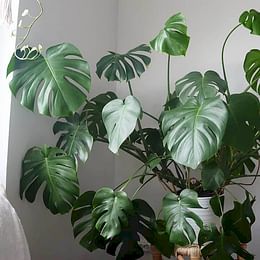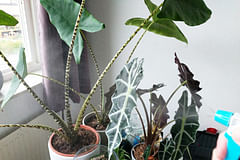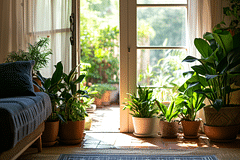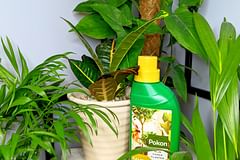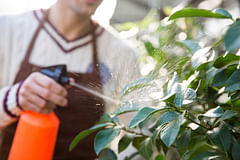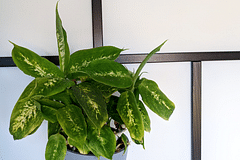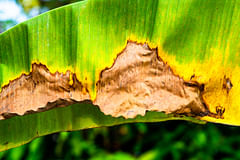Do you know if your plant is toxic to pets or childen?
Worried your houseplant might be toxic to pets or children? Discover how to identify safe plants, spot common risks, and keep your home both green and family-friendly. Simple tips for every plant parent!
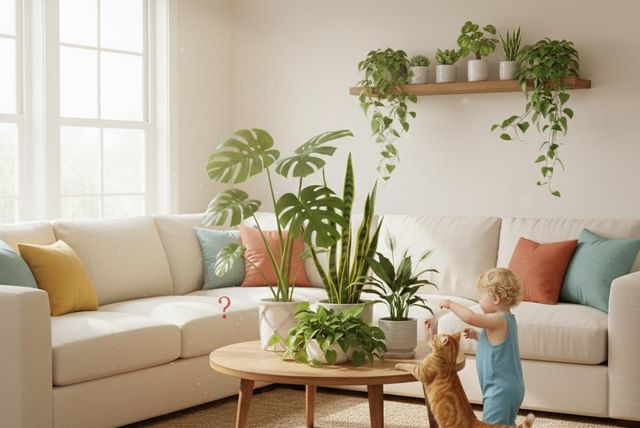
Have you ever wondered if that beautiful plant in your windowsill is safe for your pets or children? That's good to think about, because a lot of houseplants are actually toxic when ingested. This means, without the right care, your beautiful new houseplant could harm your pet or child.
Plant toxicity checker
If you've got a nice collection of plants, it could be quite a task to look up if any of these plants are, in fact, toxic. So, to help with this, I've created a toxicity checker. You can easily check if any of your houseplants are safe or if they're better kept out of reach of your pets and/or children.
Keep in mind, this tool only contains the most popular houseplants, as I'd have to spend hundreds of hours to get them all. If you don't find the plant you're looking for, there is a good chance I still have written a plant care guide about it, so use the search bar at the top of the page for extra information.
What to do when a child or pet has ingested your plant
When you've noticed your pet or child has ingested any part of your plant, make sure to reach out to medical professionals right away to discuss next steps. Don't wait! In the best case, your plant is completely safe for your pets or children, and they're fine, but in the worst case, quick action might be needed. So drop everything and contact your local medical professionals.
Thank you for reading this post! I hope it helps you to keep your plants healthy and beautiful! If you're looking for more guides on specific plants, you can always request a plant guide to get a guide for the plant you have trouble with.

